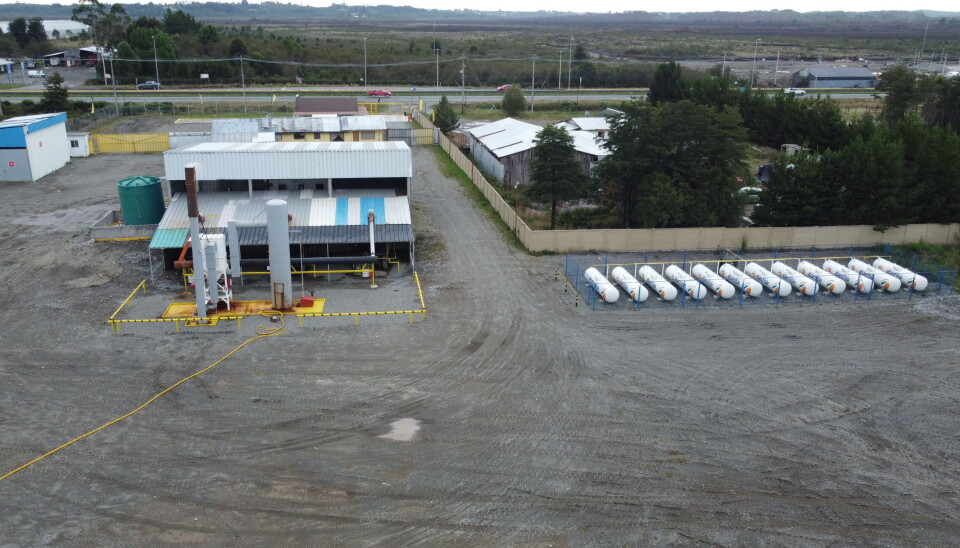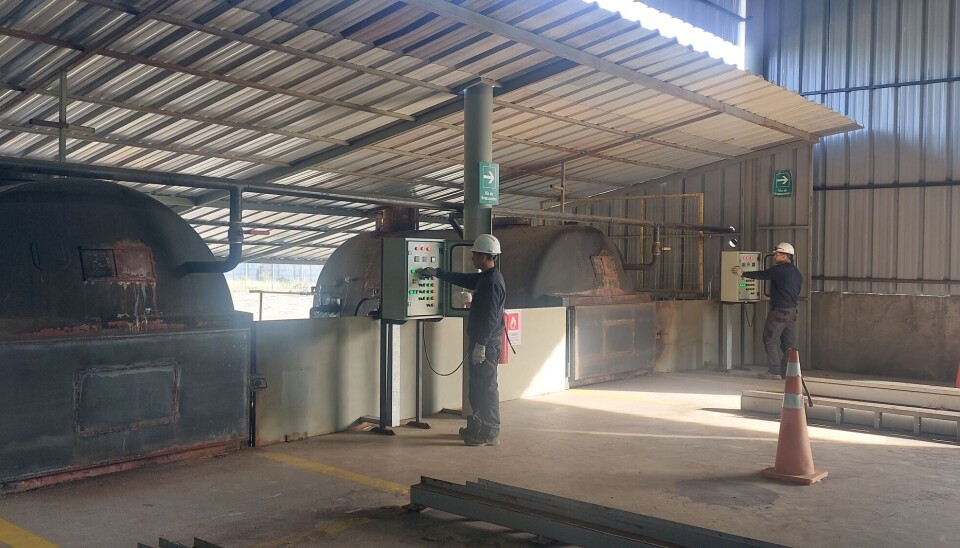
Incineration plant reduces sludge by up to 98%
The Rinemar plant is dedicated to the reception, storage, and incineration of residual organic sludge from fish farms and processing plants. It has an installed capacity of up to 29 tons per day.
Rinemar is the first organic sludge incineration plant in southern Chile. The facilities began construction in 2021, but it was not until 2024 that it could operate, after obtaining the necessary permits from the authorities.
In the quest to explore new business opportunities after the pandemic, the founding partners Ricardo Bijit, general manager, and Nelida Marín, legal representative, decided to embark in this area with the idea of providing a sustainable solution for waste management.
Start point was the Coquimbo Region, where they identified the urgent need to address the organic waste generated by the scallop industry. However, their research took them further south, to the Los Lagos Region, where an even greater challenge was found: the organic sludge produced by the salmon industry and other animal production activities.

The facility established in Chinquihue Alto, Puerto Montt, is designed for the reception, storage, and incineration of residual sludge from fish farms and processing plants. This alternative seeks to offer a quick, economical, and responsible way for the disposal of organic sludge.
The three furnaces specifically designed to treat these wastes have a total incineration capacity of up to 29 tons of sludge per day, "supported by certifications and regulatory compliance required by health and environmental authorities," details Nélida Marín to Salmonexpert.
98% reduction
According to Rinemar's representative, this is a final disposal alternative for all organic waste from the aquaculture industry's production chain that cannot be used for the production of fishmeal and oil, and which is currently being disposed of in authorized landfills for these purposes, most of which are not located in the region.
The company currently has a resolution for consultation relevance and sanitary authorization for incineration. Additionally, they are adhered to the National Waste Declaration System (Sinader) as the final recipient.
At the moment, they are working with La Portada and Fiordo Austral fisheries, however, they seek to expand to provide benefits to local companies and grow to other cities. Also, in the future, they want to be able to use the product obtained from incineration.
"At this moment, the waste we treat is reduced by approximately 98%, so 2% is being collected. When we have a significant weight, it can be tested to evaluate if it can be used as organic fertilizer," concludes Marín.




















